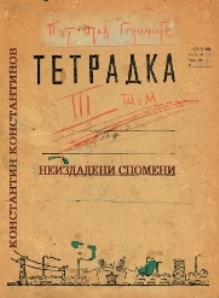
Път през годините. Неиздадени спомени.
Unpublished memories of one of Bulgaria's most prolific memories authors.
More...We kindly inform you that, as long as the subject affiliation of our 300.000+ articles is in progress, you might get unsufficient or no results on your third level or second level search. In this case, please broaden your search criteria.

Unpublished memories of one of Bulgaria's most prolific memories authors.
More...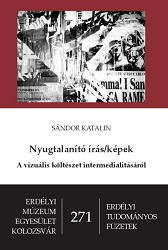
In this volume I discuss the intermediality of visual poetry can correlate with the ideologies and projects of various movements but not as their unproblematic translation into the sphere of artistic practices. Consequently, I examine these movements as ideological constructs having their own (self)contradictions, revealing at times discrepancies between the declared projects and the concrete artistic results.In the volume I discuss three specific figures of visual poetry – concrete and lettrist poetry and collages – in three different chapters due to the fact that these figures can be related to different historical contexts and display different imagetext relations.Concrete poetry (e. g. poems by Gomringer, Heisenbüttel, de Campos, Kolár) can be perceived as an attempt to extend the limits of language, to reveal both the verbal and the non-verbal conditions of reading. In concretism language does not appear as purely conceptual but as an embodied language, whereas reading is not a medially homogeneous practice but is shaped by the iconicity of the text, by the sensuality of writing and the ”silent”, non-discursive spaces between words. From the perspective of image-text relations, figurative concrete poetry tends to display a shift from naming and convergence towards divergence by scattering the correspondence between word and image (which can be related to the modernist experience of losing the common system of reference between words and things). In non-figurative concrete poetry the shaping of the typographic space, the non-linear distribution of writing, the combination and variation of linguistic elements are meant to foreground not the referentiality but rather the materiality of language.In lettrist poetry and in typograms (e. g. the works of Isou, Broutin, Szombathy, Géczi, Tandori, L. Simon) the non-semantic use of writing as visual material seems to extract even the last verbal elements from the process of reading, apparently replacing the problem of medial heterogeneity with that of monomediality.Although lettrist poems minimize the linguistic elements and foreground the physical aspects of language, they do not exclude the verbal dimension altogether.Hypergraphics as a mode of writing suggested by lettrist authors, combines different sign-systems evoking in this way the cultural memory of writing: from pictograms to mathematical signs, from iconic signs to the latin alphabet, from drawing to calligraphy. Another argument in favour of intermediality could be that lettrist works are prepared, announced, justified by poetic manifests and theoretical discourses which actually function as discursive pre-texts for the works themselves. (Referring to abstract painting, W. J. T. Mitchell speaks about a similar problem, namely the interdependence of theory and painting, which he calls ut pictura theoria.)In the collages of visual poetry (e. g. the works of McCaffery, Géczi, Zalán, Szombathy) both texts and images appear as fragments from larger contexts: from literature and painting to science and mass-media, from the anonymous found objects to the cultic products of culture. In collages the use of words and images becomes a contextual practice, more precisely a confrontation of different contexts.We can observe the eruption of images in the sphere of verbality (and vice versa), which marks an important difference between the perception of language in collages and the concretist concept about a decontextualized language, purified of referentiality. This impurity and medial heterogeneity of collages can expose the ideology and the contradictory aspect of certain modernist tendencies to purify the medium of language or painting to get to its essence.The above-mentioned figures of visual poetry can become the antecedents of certain intermedial practices in the digital medium. I discuss the way digital texts become flexible or even unstable, offering the readers the possibility to alter or recreate images and texts. In some texts the iconic-calligrammatic aspect which is based on a static, compositional correspondence can be replaced by correspondences between different temporal processes and performative acts. Those texts and multimedial installations which involve the human body in the process of reception expose the act of reading and communication as an embodied and not entirely discursive practice.The study of intermediality has made clear that the relation between texts and images is not relevant only from the perspective of mediality. More precisely: neither the problem of mediality can be restricted to technical and material aspects, but extends to the symbolic practices, the ideological and institutional contexts of the medium. Thus, collages do not only combine texts and images but also display a reflexive (or at times critical) attitude towards tradition and different cullural phenomena by confronting canonical and marginal, artistic and non-artistic discourses.In concrete poetry not only the image-text relation is raised as a problem but also the discursive and medial conditions of seeing and meaning-making.Although from the perspective of cultural criticism some works of visual poetry are considered a ’weak’ self-referential discourse, I would still emphasize the critical potential of reflecting on the medium and intermediality. Ideological constructs can be questioned precisely by revealing their constructedness, as well as their institutional, discursive and medial conditions. Intermediality as a critical practice and the capacity of intermedial phenomena to displace homogeneous discourses and institutional or disciplinary practices can show us that intermediality is not only the name of a (stable) relation between words and images but a continuous question and challenge.
More...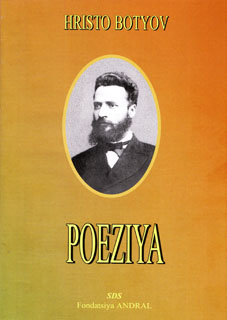
Hristo Botev is one of the famous Bulgarian poets, genius, highly revered in Bulgaria. Born in Kalofer, he studied in Odessa, where he met with the works of Russian revolutionary democrats. He returned home, then emigrated to Romania, where he created his poetry and published newspapers as "Banner", "Word of Bulgarian emigrants" and others. Together with Stefan Stambolov (prime minister of Bulgaria after the Liberation) issue poems in the book "Poems". In 1876 he died in battle for the liberation of Bulgaria from Ottoman rule. This book is the first translation of the verses of Hristo Botev in Romany.
More...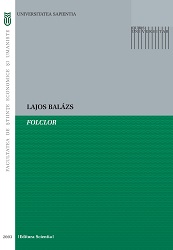
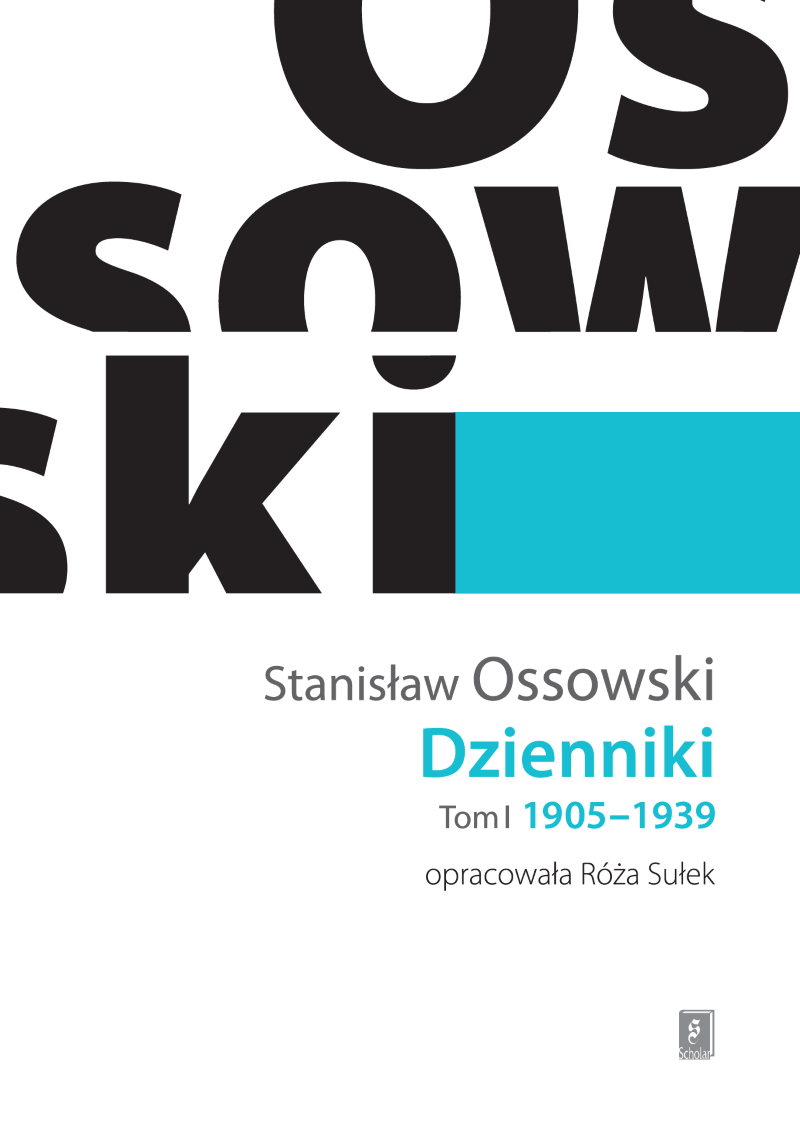
„W kręgu Stanisława Ossowskiego” to projekt naukowy realizowany przez Instytut Socjologii Uniwersytetu Warszawskiego. Jego celami są: dokumentacja dorobku Ossowskiego i jego środowiska, badania nad twórczością i znaczeniem tego kręgu oraz publikacja niedrukowanych pism uczonego. Tom pierwszy Dzienników jest drugą książką powstałą w ramach projektu.Dzienniki Stanisława Ossowskiego, wydawane ponad pół wieku po jego śmierci, obejmują niemal całe życie autora, wplecione w historię Polski. Pisane były, z przerwami, od 1905 do 1963 roku. Są zbiorem zapisków z życia codziennego, wojen i podróży, obserwacji środowiskowych, notatek z lektur i przemyśleń; łączy je uważność i refleksyjność. Stanowią materiał do biografii intelektualnej Ossowskiego i źródło do historii życia umysłowego w Polsce. Bogaty aparat naukowy ułatwia zrozumienie zapisków i umieszcza je w kontekście ludzi, miejsc i czasów.Tom II obejmie lata 1939–1949, a tom III – 1949–1963.
More...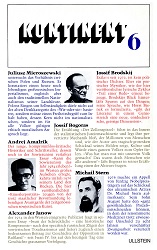
August Stern (Ed.) — From "A Quite Ordinary Process". Mikhail Stern in front of his Soviet judges // Andrej Amalrik — Three artist portraits: 1. Soccer professional or dilettante Painter: Anatolij Swerjew - an artist about whom we talk a lot but write little. 2. A realist of the inner world: Oskar Rabin — the artist who develops the »hidden currents of Russian art«. 3. The artist from the country behind the mirrors: Wladimir Weißberg between his imaginary pictures // Jossif Brodskij — part of a speech. Lithuanian Divertimento // Jossif Bogoras — Der Zellenspitzel [2nd Part] // Juliusz Mieroszewski — The Russian »Poland Complex« // Alexander Janow — Ivan the Terrible — a historical component
More...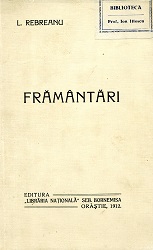
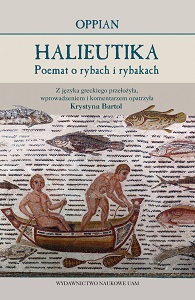
The epic Halieutica, written by the second-century AD poet Oppian, was a work thematically and artistically attractive for the ancient reader. It remains such for the contemporary reader, too. In the poem, Oppian tells a common story about the habits of marine animals, and the key principle in presenting the underwater world and its inhabitants is anthropomorphisation. The poetic presentation of fishermen's struggles with deep-sea creatures is, in the author's view, a moral-philosophical reflection on the unity of different elements of the world and the place occupied by humans. Consisting of more than three thousand hexametric verses and dedicated to Emperor Mark Aurelius, the poem is still dazzling with its different moods, refined erudition and elegance of poetic phrase. The epic poem measure of the original was rendered in the Polish translation using a traditional thirteen-syllable meter (retaining an identical number of verses).
More...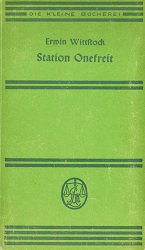
Two tales of German literature written in Romania. THE ORIGINAL IS PRINTED IN GERMAN FRAKTURY TYPESET. READERS SHOULD BE FAMILIAR WITH THOSE CHARACTERS. Published 1936 by »Albert Langen / Georg Müller« in Munich
More...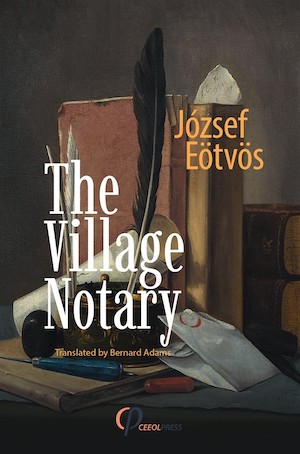
The Village Notary, originally published in 1845, presents a cross-section of Hungarian society in which the ruling elite were all too often lazy and self-seeking while the lesser lights, whatever their sterling qualities, were at their mercy and open to abuse. Eötvös's primary purpose was to expose the unsatisfactory nature of the traditional county administration. Hungary could hardly be considered a nation when so few of the people derived benefit or protection from the way that affairs were handled. The book holds a balance between racy tale and the author's frequently trenchant commentary on the Hungary of his time. In the English translation of 1850 it is significantly abridged in favor of the racy tale, thus diluting Eötvös's purpose not a little. The present translation is made from the unabridged Hungarian, and one must hope that while being better informed of Eötvös's aims the reader of this version will suffer no loss of entertainment.
More...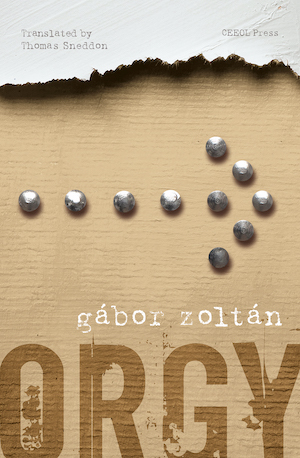
This novel is set in Budapest in the winter of 1944–45, and as such it is related to the history of Hungary, and of the Second World War. Extreme circumstances changed the behavior of many who lived through them, so that their actions were later described — or rather obscured — by terms such as “terrible,” “incomprehensible,” “inexplicable,” and other similarly strong adjectives. The Arrow Cross seek out individuals not only of Jewish descent; anyone they view as liberals, “English sympathizers” or “humanists,” are considered enemies and therefore prey. One such man is the novel’s main character, the thirty-year-old factory owner, Renner. In addition to employing and concealing many Jews in his factory, both his wife and lover are of Jewish descent. He is a successful, fearless man: the Arrow Cross have plenty of reasons to kill him. But instead of a swift execution, they torture and humiliate him even longer than usual, subsequently forcing him to assist them. The novel focuses on Renner, station to station. Readers follow events through his progressively hazier point-of-view; in addition, the combined voice of the Arrow Cross also speaks by way of the barbarian horde reincarnated in the modern big city.
More...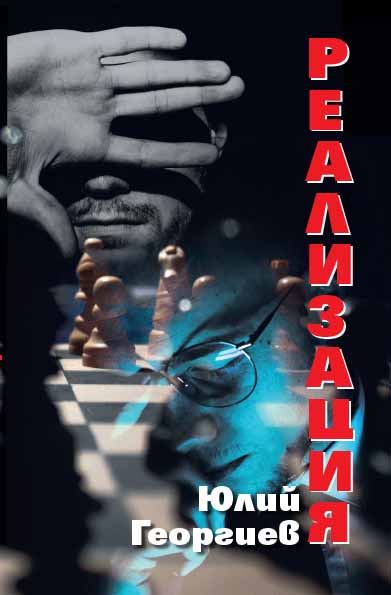
An extraordinary spy novel in which the materialistic and the metaphysical conceptions of our lives are simultaneously and successively recast in a strange symbiosis as if on a film strip, following an unusual, very intriguing scenario.
More...
The leitmotif of the novel is the eternal theme – the struggle for the soul of the artist. Which path should be chosen – the path of power, wealth, self-aggrandizing materialism, or the path of deprivation, humility and selfless work.In the life and professional clash of two of his heroes – artists – the author also paints a magnificent picture of the complex and controversial era from the 1950s to the end of the century.
More...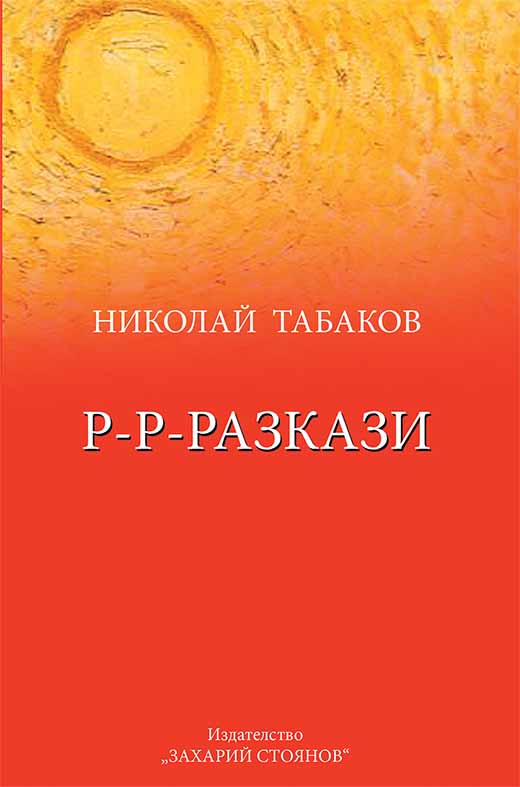
In his stories, as in his novels, Nikolai Tabakov does not betray himself: he describes strange and funny people, he describes miracles, he describes original things. He describes life in such a way as to turn it into literature, and literature makes him describe it in such a way as to turn it into life itself.
More...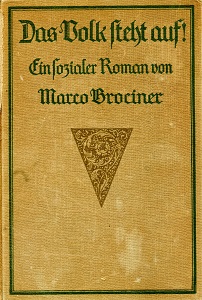
published in 1911 by Adolf Bonz & Comp. Publishing House, Stuttgart.THE ORIGINAL COPY FOR DIGITIZTION HAS BEEN PRINTED IN GERMAN FRAKTURA FONT. PLEASE EDIT THE INTRODUCTION.PDF TO MAKE SURE WHETHER YOU’LL BE ABLE TO READ A TEXT IN THIS FONT.
More...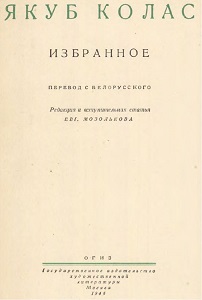
Collection of Poetry of Jakub Kolas, published in 1946 by the State Publishing House of Literature (Осударственное Издательство худ Ожественной Литературы) in Moskow, with an introductory article under the title: «ЯКУБ КОЛАС — НАРОДНЫЙ ПОЭТ БЕЛОРУССИИ», an obvious; however disputable attempt to capture Jakub Kolas as a poet in conformity with the traditions of Stalinist SovIet Union.
More...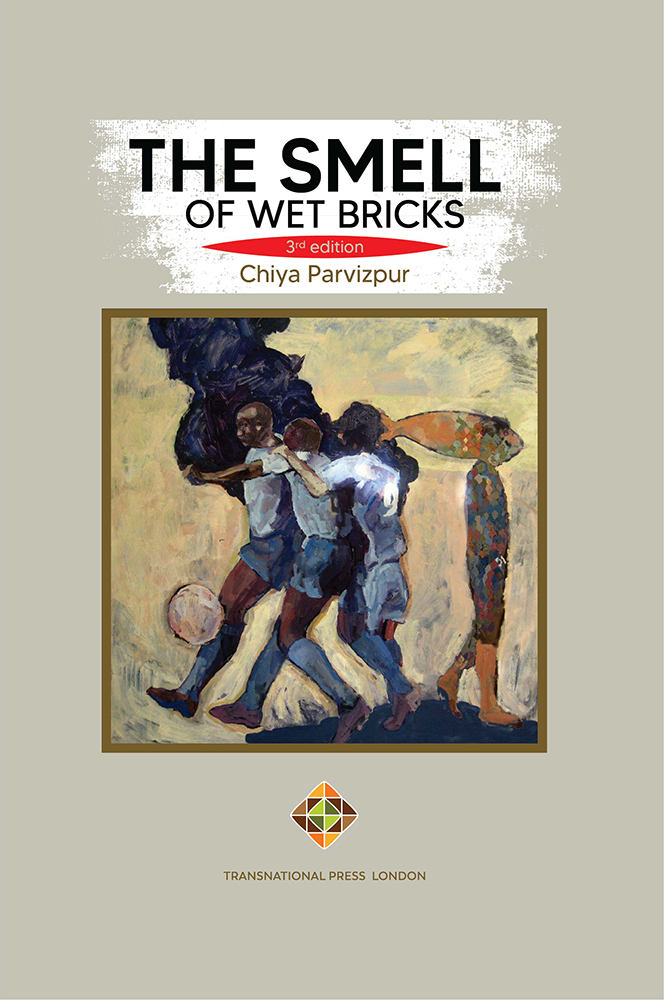
This is the third edition of Parvizpur's debut novel. "The Smell of Wet Bricks" stands as an innovative short novel written in English by a Kurdish author. Hailing from a region scarred by a century of violence and wars, this work, by the Iranian Kurdistan native Chiya Parvizpur, emerges as a fresh and distinctive voice. Parvizpur aspires to be the advocate for a rich reservoir of compelling narratives. Born in Sanandaj, a Kurdish writer and translator, Parvizpur expresses his creative prowess in both Kurdish and English. Devoted to translating the masterpieces of Kurdish novelists into English, he leverages his background in English Literature to focus on crafting fictional works. Drawing inspiration from his folk culture, myth, and history, Parvizpur endeavors to reveal the untold stories of the Kurdish homeland—narratives that would otherwise remain veiled and suppressed.
More...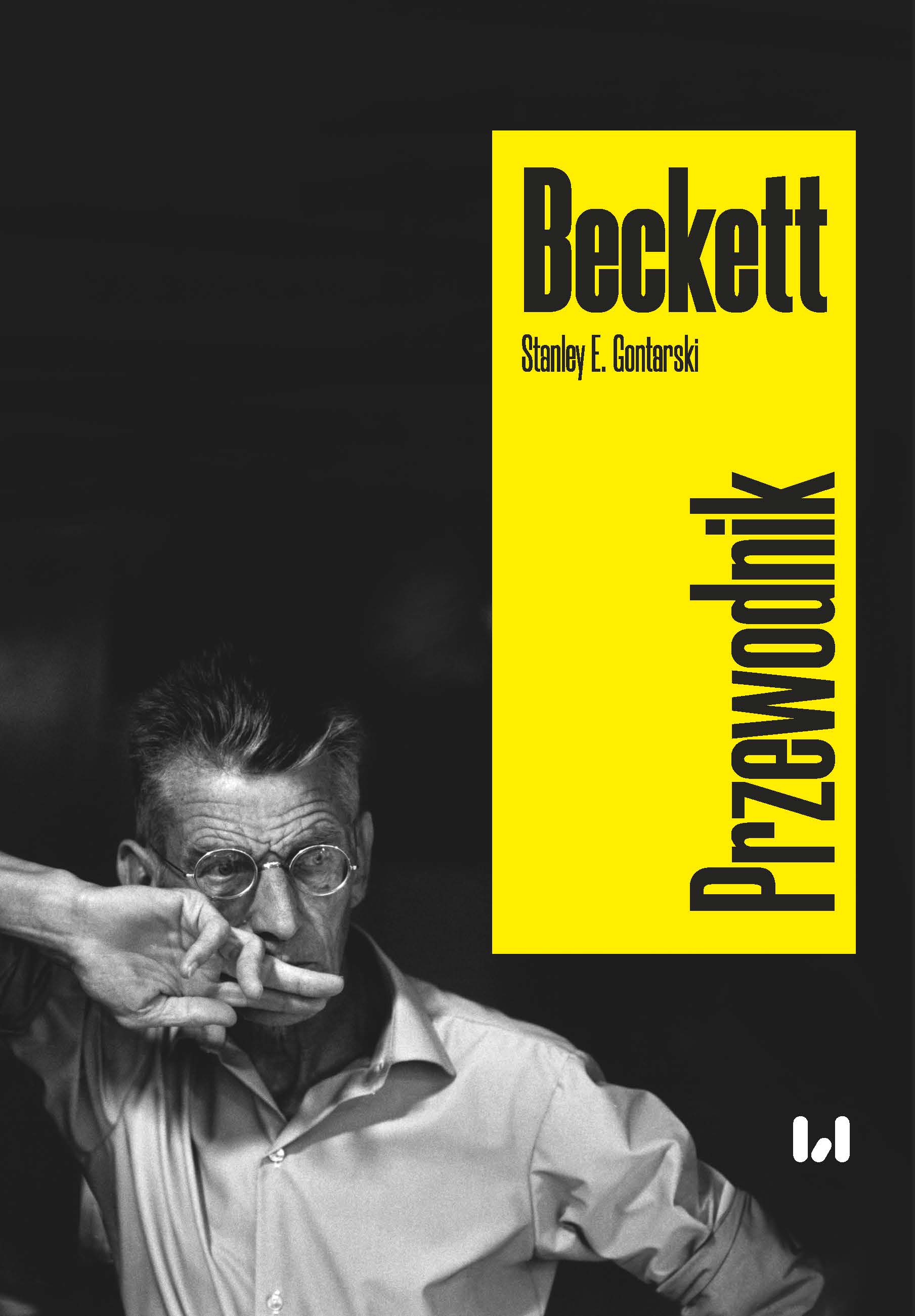
Stanley Gontarski’s A Samuel Beckett Handbook offers a thorough and comprehensive introduction to dramatic writings of Samuel Beckett. The analytical part is divided into two sections: the first one covers major plays (Eleutheria, Waiting for Godot, Endgame, Krapp’s Last Tape, Happy Days), the second concerns shorter plays. This analytical material is accompanied with very inspiring and thorough presentations of Beckett’s work for the theatre, his directorial style and his writings for film. The interpretative part of the book is preceded with Beckett timeline, presenting major dates and turning points both in his private life and artistic career. This complex approach to Beckett’s dramatic and theatre art makes A Samuel Beckett Handbook into a very useful and scholarly introduction to the writings of the Irish author. An added asset of the publication is the fact that Gontarski extensively uses various available archives and Beckett’s manuscripts, which opens an entirely new perspective on our understanding of canonical works by the author of Waiting for Godot. In its overall view, A Samuel Beckett Handbook also connects Beckett’s writing with the tradition of European art and literature, showing his oeuvre as a continuity but also as innovation within the canon.
More...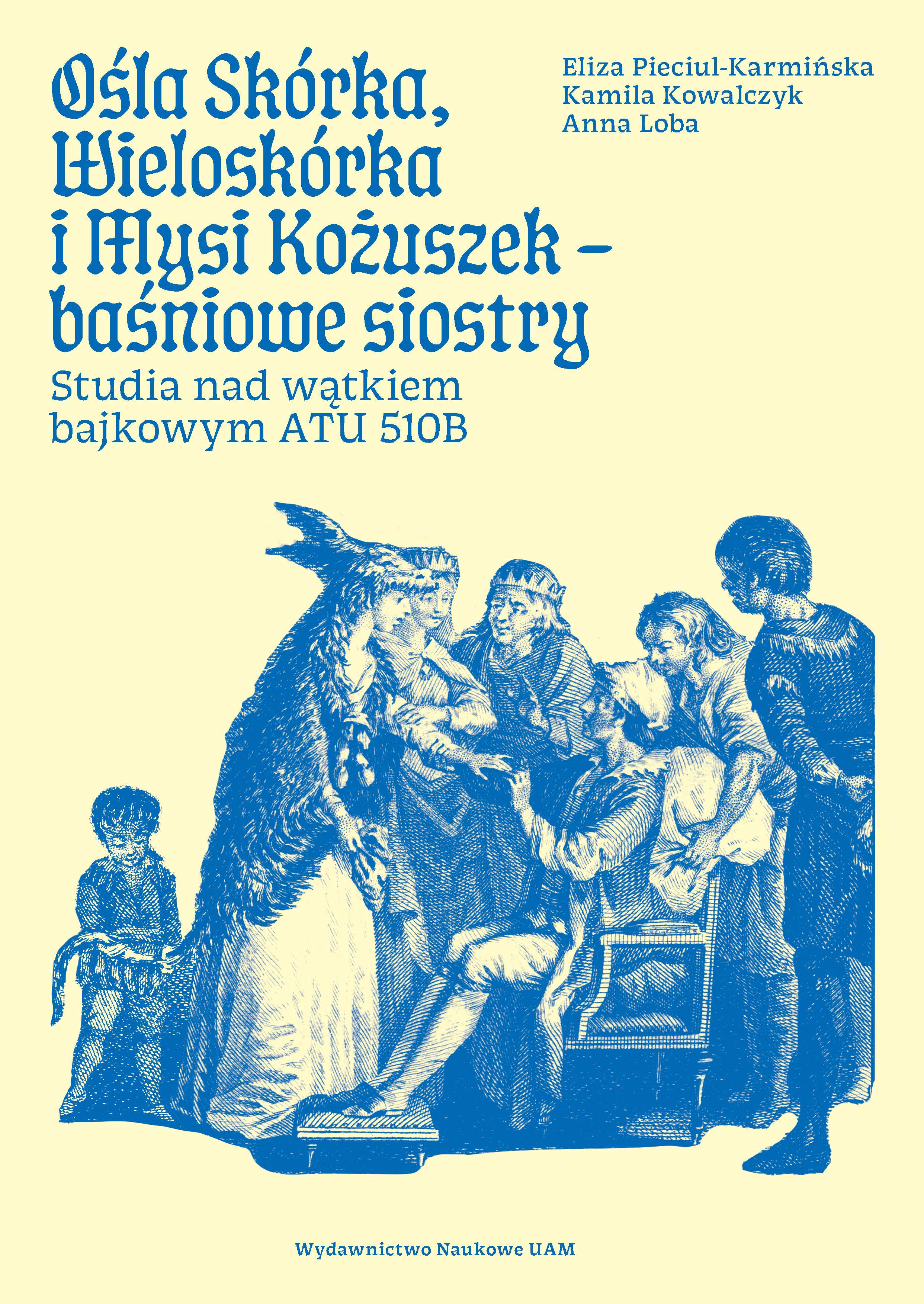
What were the sources of Donkeyskin by Charles Perrault and the Brothers Grimm’s Allerleirauh? What kind of fur jackets were worn by the heroines of Polish variants of the ATU 51 OB folktale type? What are the differences between the French, German and Polish versions of the theme in question? The monograph Donkeyskin, All-Fur and Mouse-Fur - the Folktale Sisters. A Study of the Folktale Type ATU 51OB seeks to answer these and many other questions. The three authors propose a story about a unique fairy tale, which touches on issues such as cultural taboos, violent behaviour and social inequalities. This is a story about a girl who runs away from her father and conceals her identity by wearing unusual clothes: a story with many endings and meanings.The book is the first Polish-language monograph devoted to the folktale type no. 510B, according to the Aarne-Thompson-Uther lndex. The three authors concentrate on the chosen folktale type ATU 51OB, presenting different philological perspectives for their research on a variety of texts of folk provenance and literary works, on accompanying paratexts, as well as on complex reception factors. Their study’s main protagonists are: Donkeyskin (Peau d'Ane), All-Fur (Allerieirauh) and Mouse-Fur (Mysi Kożuszek) - the three folktale sisters whose fate is described and interpreted by the authors, referring to French, German and Polish literary and cultural contexts."
More...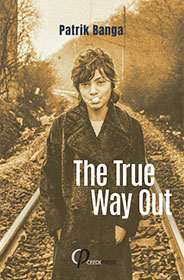
The time: 1990s. The place: Prague’s Žižkov district. A neighbourhood where hopelessness, drugs, alcohol, and fights are the everyday normal. Growing up in the local Roma community means you are destined to be just another misfit. However, the story of journalist Patrik Banga is strikingly different. It captures his life’s journey from the Roma quarter to becoming a journalist in the Czech media. In a raw and very open style it depicts the reality of a teenage boy who encounters rejection, criminalization, racism, and police brutality at an early age. And he’s looking for a real way out. Patrik Banga is a journalist, musician, and IT entrepreneur. Since 2007, he has worked in the newsroom of iDNES.cz, a news portal. He has also worked as a reporter for Czech Television’s flagship evening news programme. He is one of the makers of the documentary film The Ghetto as a System / Ghetto jako systém (2012). His blog attracts over one million visitors. In 2022, he published his first book, Skutečná cesta ven.
More...